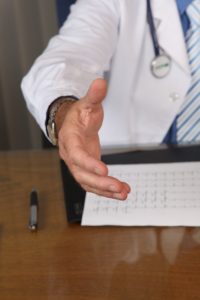Occupational Therapy for RSD
There are many pressing issues facing the healthcare system in this country today, and one of the most widespread problems that people visit the doctor for is chronic pain. While some may view chronic pain as a relatively minor issue, this could not be further from the truth. According to information that has been published by the National Institutes of Health (NIH):
- The number of people who suffer from chronic pain in the United States is more than the number of people who suffer from diabetes, heart disease, and cancer put together
- In a survey, more than half of all adults in the United States (126 million) reported experiencing pain in the last three months
- Millions of these people reported that they felt their pain on a daily basis
- Close to 5 million reported their pain as severe
One of the many different conditions that can cause chronic pain is called Reflex Sympathetic Dystrophy (RSD), which is also referred to as Complex Regional Pain Syndrome (CRPS). The individuals who suffer from this chronic condition often have an inciting traumatic injury. This could be an auto accident, a slip an fall injury, or even something as seemingly minor as a sprained ankle. Examples of traumatic injuries that might lead to this conditions include:
- Bone fractures, such as those of the wrist, upper arm, or ankle
- A burn injury, such as that from an open flame or chemical
- Blunt trauma, such as a crush injury
There are severe consequences of this chronic pain condition that can impact every facet of someone’s life. Therefore, the care and management of someone with this condition should involve a variety of medical specialists and healthcare professionals from all different fields. One field that is particularly helpful is occupational therapy.
Difficult Returning to Work with RSD: Occupational Therapy
One of the biggest challenges of managing a diagnosis of RSD is the inability to return to work. Many people experience extreme symptoms with RSD, such as:
- Pain flares that make it challenging to get out of bed
- Worsening symptoms with changes in temperature, precipitation, and climate
- A hypersensitivity to touch
- Pain that gets worse with movement
It is easy to see how this pain can make it difficult to move. Academic sources have reported that up to two-thirds of individuals who have been diagnosed with RSD suffer from motor impairments that are related to chronic pain. Examples of problems that people have with motor function can include difficulties walking, writing, and carrying objects. This can make it hard for people to return to work. Sometimes, these movements are limited by swelling. Other times, these movements are inhibited by contractures of the muscles, or muscles that are so tight that they cannot move. In some situations, people may even suffer from tremors. For help with these movements, meeting with an occupational therapist is a good idea. These therapists are trained to help people return to work, school, and perform work around the house. Occupational therapists have access to tools that are specifically designed to help people return to their baseline level of functioning. Do not hesitate to ask for a referral to OT (occupational therapy).
Help from a Trained Legal Professional
Ultimately, it is clear that RSD is a major burden on not only the individual but also their family. Therefore, it is important for people to seek care from not only doctors but also ancillary care, such as physical and occupational therapy. An occupational therapist has the tools necessary to help someone return to work and provide for their family. Furthermore, meeting with a legal professional can also be helpful. An RSD Attorney in Sacramento has seen the type of stress that RSD can cause a family. It is important for a trained legal adviser to investigate every detail of this diagnosis because you and your family might be entitled to financial compensation.
Related Articles by Ed Smith
Contact an Experienced RSD Attorney in Sacramento
I’m Ed Smith, an RSD Lawyer in Sacramento. If someone you know needs additional treatment options for Reflex Sympathetic Dystrophy, please call me at 916-382-0693. I am available to provide friendly, free legal advice.
Everyone is asked to look at my sample results here.
Image Citation: Pixabay printed the photograph at the start of this page. The CC0 Creative Commons License has granted permission to reproduce it here.
:dr llo [cs 720] 13p

